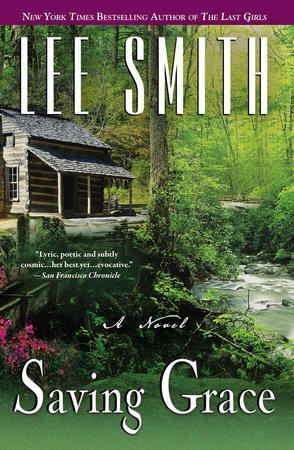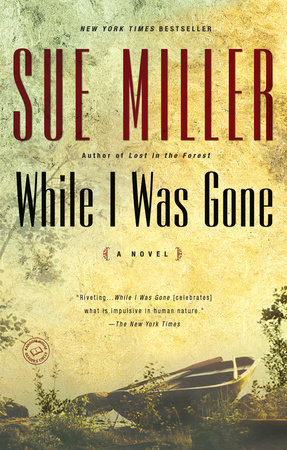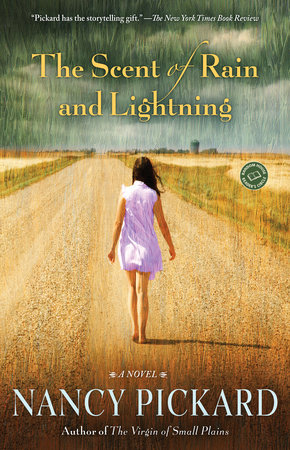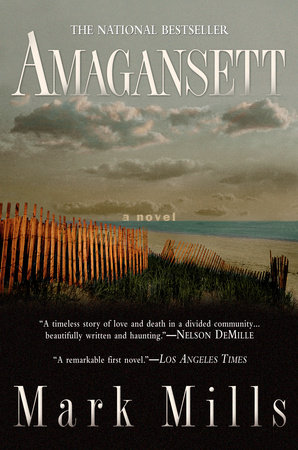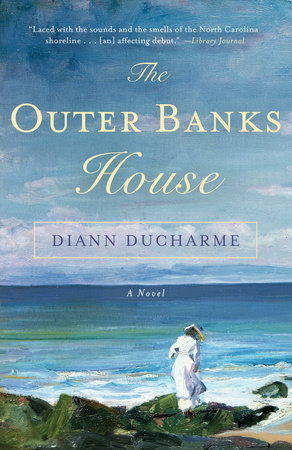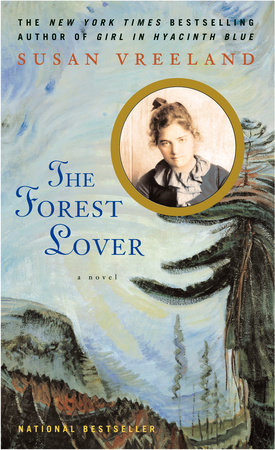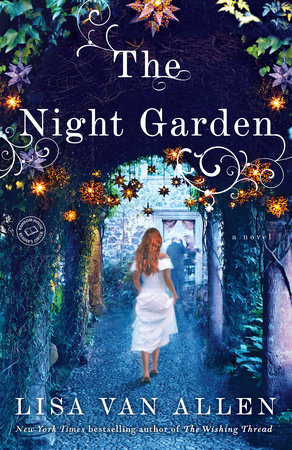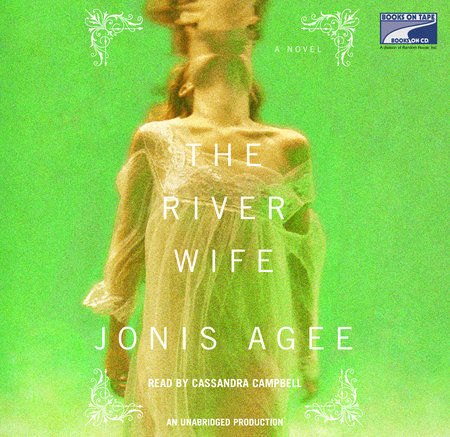Author Q&A
A CONVERSATION WITH JONIS AGEE
A Jacques’ Landing Roundtable
Random House Reader’s Circle moderated a discussion group where Jacques Ducharme, Hedi Rails Ducharme, Annie Lark Ducharme, Laura Burke Shut Ducharme, Omah Ducharme, and Maddie Shut had the chance to speak with author Jonis Agee about her strategies for writing about–and her interference in–their lives. We are pleased to present a transcript of that discussion here.
Random House Reader’s Circle: Thank you all for being here today; we know you’ve all been looking forward to this. Jacques’ Landing residents, is there any one in particular who would like to begin?
Jacques Ducharme: Why a pirate? And why, cher, this particular pirate? What you want to go and give away all my secrets for? Why could you not have let the river take me, so I could join my dear little Annie?
Jonis Agee: Your wives were recording your secrets, Jacques. You should know that there is nothing that stays hidden, especially wrongdoing. You tried to hide the evidence in your tunnel room, but eventually even that was discovered. I thought that you should die with the thing you valued most–your heap of stolen goods, the fortune you made. Besides, the river wouldn’t have you, not after you put so many souls in it. Nothing could kill you, Jacques, you had made yourself a force beyond nature. Only you could decide to die–that’s why you had to spontaneously combust or self-immolate. If you keep helping people in the afterlife, maybe your ghost will finally be permitted to leave the house and join Annie’s.
Hedi Rails Ducharme: I shudder to ask this, since it brings back such a painful memory, but can you say something about sand boils?
JA: They’re one of the most intriguing by-products of the great quake– seemingly bottomless pits where the ground actually liquefied. They periodically fill with water, too, and nothing grows on top of them. Farmers have to be careful not to drive their machinery over them, because the boil never gives back what it takes. If you fly over the Bootheel region of Missouri, you can look down and see the yellow areas on the land which are sand boils. When the next big quake hits, those boils will probably spit back what’s in them.
Annie Lark Ducharme: What was Jacques doing in the woods that made him so strange? He never grew old after that.
JA: Jacques found something or someone with the power to grant him his desire for a vast fortune, and all he had to do was use everything he had in himself to bring it to fruition. He didn’t quite trade his soul in a pact with the devil, but he found that without a heart, he could be utterly ruthless. By shrugging off the burdens of morality, he could stay young, without grief or care, ageless.
Laura Burke Shut Ducharme: I don’t have a question for y’all, except to say that I was not a gold digger! I did love Jacques, no matter what they say! Didn’t I?
JA: No, Laura, it’s pretty clear to everyone that you wanted his fortune and the security it offered. Lots of people marry for those reasons. Your problem arose when you miscalculated what and who Jacques was, but then, you weren’t alone there. I’m sorry that you had to die in that awful hole, but you are much more like Jacques than you realize, and you share a similar fate.
Omah Ducharme: What is it about Jacques that cast a spell over so many women, ole twisted stick of a man with on’y one arm?
JA: I’m surprised that you’d ask this question, Omah. Surely you saw his quixotic personality over the years, his vast powers, his ruthlessness. Why did you fall in with his schemes? You may not have been his mistress or wife, but you did fulfill his plans for you, didn’t you? You became like Jacques, shared that power. It was exhilarating, wasn’t it? Remember the first night on the river, how strong you felt after you saved your own life? That feeling of being reborn, without weakness, without conscience, without consequence, as if you were a god walking the earth? That’s what women kept seeing in Jacques, kept believing they were going to get to share. That kind of belief in yourself is like a narcotic to other people. You know that, Omah; look at the men who were seduced by your power. Most women will trade the physical aspect of a man just to cozy up to that vastness of the unlimited self and the fortune it accumulates around itself.
Maddie Shut: How do you explain the mystery of my Da? Why didn’t he want me to marry and have a child?
JA: Read the journals, Maddie. He loved you. He hated betrayal more than anything, and he never forgave it after Annie Lark, his first wife. He loathed the weakness in himself that led him to marry Laura, his one great mistake. He was afraid that Laura’s blood was tainted by greed and selfishness–something he couldn’t stand in other people, by the way. He was trying to control the future with the codicil. He didn’t want his hard-earned money going to someone like Laura. Basically, I’m sorry to say, he didn’t trust you to find someone like L. O. Swan who would bring the best out of you and help create a person of fine character. Your Da was in his dotage, Maddie, gone slightly mad with having seen and done too many bad things, and lived too long. He came to believe that the world was a violent, hopeless place, and he didn’t want all he had worked to build to fall. He was wrong, of course, as most of us are when we try to plan for the future based on the unchanging present we perceive.
RHRC: Okay, okay, it’s about time we chimed in before you all get out of hand. Surely this could go on forever! Jonis, may we ask what it is about the New Madrid earthquake that you found so compelling?
JA: Growing up in the Midwest where we were always watching the sky for the tornado that was coming to tear our world apart, I developed a kind of fatal attraction for natural disasters. The New Madrid quake was the largest ever to occur in North America; it lasted for a whole year with over two thousand quakes and aftershocks, and it made the mighty Mississippi River run backwards at one point. More important, there are eyewitness accounts that give a personal view of the terror of those early days of the quake. The town of New Madrid is emptied and eventually taken by the river changing course because of the quake. As I was reading the early accounts of the quake, I came upon the haunting story of a young girl who was trapped and abandoned by her family the night of the first quake. In a way, The River Wife grew out of that one story and my need to save her life. I simply couldn’t stand the idea that she was left to die by the people who loved her. She became Annie Lark, and Jacques Ducharme was one of the French fur trappers who were dug into the banks of the river that night, and who reportedly somehow survived.
RHRC: Very interesting indeed. In writing historical fiction around that kind of event, what delighted you the most–and what did you find most dangerous?
JA: It’s wonderful to see a world come alive through historical details. Audubon was riding his horse in Kentucky during one of the big quakes, and there is an account of him beating his horse when it stopped, terrified. When Audubon jumped off the animal, figuring it was dying, he discovered the earthquake. It was exciting to have Audubon come into the novel, a natural place for him, since he was traveling and exploring for new species in the region. The day he appeared on Jacques and Annie’s doorstep, I immediately begin to read his diaries, letters, and biography for more information to make him come alive. What I like most is the discovery of things I didn’t know, and being able to include them in the fiction. The danger lies in the balancing act between historical detail and facts and character and plot. The people must always come first so they can stay realistic, alive, despite the clothing they wear. I had a lot of information about building log houses of the time, including research I’d done on tools used in that period–fascinating stuff, really–but I ended up cutting a lot of that detail because it was taking much too long to put up the first inn at Jacques’ Landing. We needed to move along with the people to discover what they were going to do next.
RHRC: How did you research all of this?
JA: I began my research with histories of the New Madrid quake, the state of Missouri, the War Between the States, the geology, weather, plant and animal species there, and as I moved through each era, I focused on more specific subjects, such as early French settlements and cooking, river travel, clothing, slavery, battles fought in the region, logging, cotton farming, Hot Springs, Reelfoot Lake, and so on. There were always details that needed to be added, and I grew to love that process of discovering–what kind of pistol Laura would carry with her to Hot Springs, for instance.
RHRC: Now, there seem to be a number of ghosts haunting the house and land at Jacques’ Landing. Can you lend a bit of insight as to whether you intend this to be a ghost story, and if so, why?
JA: I wanted to write a novel about a particular place, a patch of land along a river that was in constant motion, and tell the story of everyone and everything that passed through that place and left a piece of themselves, however slight, like a reminder to us that we are not the first, and we will not be the last. I love old houses because they bear evidence of all the lives that have been lived there, in the layers of wallpaper and paint, nicks in the woodwork and scratches on the window glass. Even the earth surrounding an old house constantly yields up evidence in the form of marbles, pieces of old hinges, coins, and combs. Last week I found a lead ball from an old rifle used when the military first set up on the bluff overlooking the river valley where I live. This was Ponca tribal land, and I keep wondering what that gun was shooting at. Ghosts are everywhere.
RHRC: Okay, here’s a question whose answer I think we’re all dying to know: Why does Jacques stop loving, or seem to stop loving, Annie Lark? It couldn’t just be Audubon and the suspected affair, could it?
JA: Annie and Jacques suffer the worst kind of loss when their baby is killed. The aftershocks continue for the rest of their life together, as they often will. Annie registers her grief by withdrawing for a time into madness, then by going up the tree to observe the world. They are never really together after the loss of the baby. Jacques registers his grief by throwing himself into another kind of madness: the building of a vast empire beginning with the house he is constructing. When they argue, it’s as if they are trying to push away the blame for the baby’s death. They each blame themselves, as well as each other. Although there is almost no way for their pain to be healed, at the very end of Annie’s life, Jacques discards the past and realizes that he still loves her. He has made a pact with the devil, however; now he can’t save her and must live forever with this new loss of the one person with whom he shared a fully realized love.
RHRC: How powerful–and after Chabot dies, Jacques seems to change for the worse, and life at the Landing degenerates rapidly. Why?
JA: Chabot was the one male friend Jacques had, the person who knew him in the beginning and saw him in love with Annie, helped birth his child, knew him as a new father, full of all that potential for family. With Chabot gone, there is no one who is an equal to Jacques, and the dark force of his desires are free to couple with the strength of his personality to make him ruthless and heartless, at times. Chabot had the power of balancing Jacques, helping him control his impulses, such as when he helps the slaves escape rather than selling them downriver, as Jacques planned to do. There is more than money to life for Chabot, and he helps Jacques realize that while alive.
RHRC: Was Clement just a bad man, or did he originally love Hedie? Why did Hedie stay with him?
JA: Clement loves Hedie as best he can when they get together. He does marry her when she gets pregnant with his child, and he does try to be a good husband, although the kind of life he’s leading eventually takes him away from her in every way. Again, the devastating loss of a child pulls them apart, although not as ferociously as it does earlier with Jacques and Annie. Clement is a more diluted version of Jacques, softer, less violent and certain of things. He isn’t the builder or dreamer that Jacques is; everything is a bit diminished in Clement’s scale of living, although to him it seems large. Clement probably never had the strength of character to remain faithful for very long, but he would always intend to do so. He does appreciate Hedie as the woman who keeps his home, which is in large part a refuge from the illegal acts he is commiting in the larger world. He likes having a wife who can nurse him to health and make him comfortable. Hedie is a seventeen-year-old girl with no family, no job skills, no money, during the Great Depression. She has no possible options except to stay with Clement or starve or worse. She makes the best of things, trying to salvage her marriage and build something that will endure for both of them so he doesn’t have to keep leaving. She knows, after Hot Springs, that he is capable of infidelity on a serial or constant basis, but she is trying to make the best of things. She is more like Little Maddie and Annie Lark than she knows. She has strength and vision that she has to learn to use, and by the end of the novel, she does, although the cost has been great. Eventually, she embraces the family belief in preserving the land, the inheritance.
RHRC: Why don’t Little Maddie, and later Hedie, bring Jacques’ fortune above ground and use it?
JA: There is so much destruction and mayhem tied to that accumulation of jewels, coin, furniture, etc., that both women understand the enormous cost to the soul it represents. Neither is willing to take that burden on unless it becomes a matter of losing Jacques’ Landing. By the time Hedie has read the journal narratives, she knows where the fortune is, but like Little Maddie, she intends to develop and use her own powers to maintain the family legacy so she doesn’t have to share in Jacques’ terrible demise. Successive generations all work to pay reparations, if you will, for Jacques’ crimes, which continue to haunt the house at Jacques’ Landing.
RHRC: Well, thank you, everyone, for being here. We’ve learned a lot, and hope you have, too.



